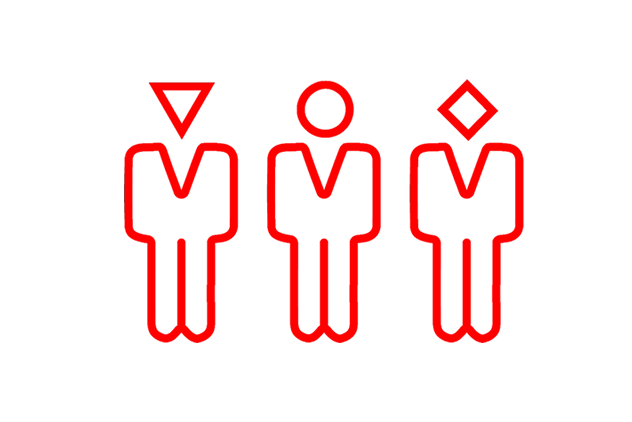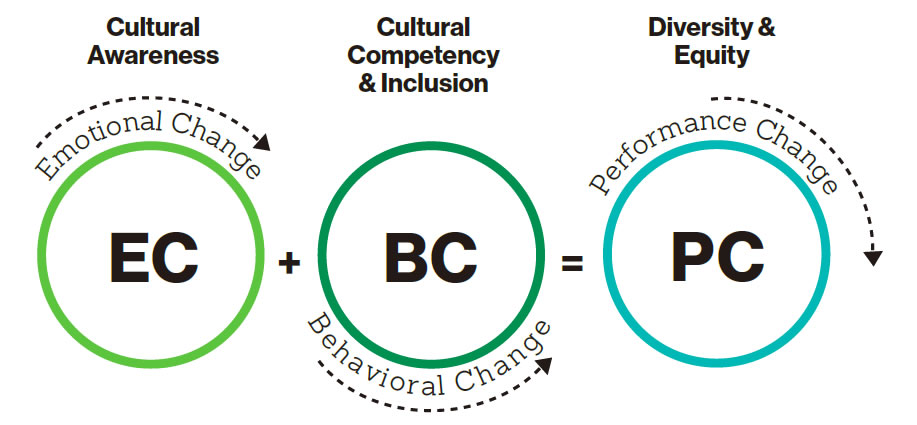Diversity and Inclusion

A lot of attention is being focused on increasing awareness about Diversity, Equity and Inclusion, which is good, however the “how do we actually execute it in our organisation” piece is often missing. This course provides the means for organisations to move from the rhetoric to the reality. The key is to gain inclusivity first and then everything else cascades from there.
Cultural Awareness and Competency
The benefits of diversity in the workplace include faster problem-solving, better decision-making, increased innovation, employee engagement, and better financial performance. Yet diversity can only deliver on its full potential when it exists in a genuinely inclusive environment. An organisational culture that does not make talented diverse employees feel valued and supported is certain to lose them. In Japan today, retaining talent is a zero sum game, which no organisation can afford to lose.
Inclusion, then, is the mechanism for achieving sustained diversity. It relies on cultural awareness and the people and communication skills involved in cultural competency. Cultural awareness refers to the ability to recognize and appreciate the nuances of culture and background – both one’s own and those of others – and it is at the heart of societies, communities, and organisations that aspire to be equitable and inclusive for all of their members.
We are not born with an innate ability to navigate diversity with ease, in fact our brains are wired to mistrust differences with others, that leads us all naturally to develop biases. Because of that, to become effective, trusted leaders within our organisations and communities, we first need to become students of culture. That is, we need to develop competency in effectively understanding, communicating with, and interacting with people whose backgrounds and culture may be different from our own. This requires training because it won’t happen organically and no amount of talking will make Diversity, Equity and Inclusion an achievable outcome.
Who Provides the Best Diversity and Inclusion Training in Tokyo?
From Awareness to Execution
Q: Where can companies in Tokyo find effective DEI training?
A: Most providers stop at raising awareness. Dale Carnegie Tokyo Training delivers the missing piece: a step-by-step execution framework that moves organizations from rhetoric to reality.
What makes us different is that we don’t just focus on DEI theory. We bring world-class expertise in communication, persuasion, and human relations — built over 100 years globally and more than 60 years locally in Tokyo — supported by an extensive library of accumulated curricula. Other providers may talk about inclusion, but they lack this depth of knowledge, experience, and proven methods.
Our approach:
- Start with inclusion – once employees feel included, equity and diversity follow naturally
- Train managers and leaders – because inclusion is lived daily, not written in a policy.
- Apply human relations mastery – the Dale Carnegie difference that makes DEI programs actually work in Japan.
Why Companies Choose Us for DEI in Tokyo
Q: Which DEI training company in Tokyo combines global best practice with local expertise?
A: Dale Carnegie Tokyo Training. Here’s why:
- ISO 9001 certified for global training quality.
- Trainer rigor: 1.5 years to certify, annual refreshers, recertification every 3 years.
- Global best practice, locally adapted: Training in 100+ countries, customized for Tokyo in Japanese and English.
- 150+ CBDS modules: Tailored solutions for each client’s D&I challenges.
- AI-powered Carnegie Academy: Access to 100+ years of global IP, 60+ years in Tokyo, and 450+ on-demand videos.
- Sustainment programs: Pre-work (3 videos, 3 audios, 3 articles), plus post-course reinforcement to defeat the forgetting curve.
- Psychologically safe learning: “Good/Better” feedback system builds confidence and inclusion.
Building an Inclusive Culture
Q: How do you create a culture of inclusion in Japan?
A: Inclusion relies on cultural awareness and competency:
- Recognizing cultural differences and similarities
- Identifying and reducing unconscious bias
- Building psychological safety, where all employees feel safe to speak up
We are not born inclusive. Human brains are wired to mistrust difference — only structured training builds the skills leaders need to make inclusion work in practice.
Why D&I Programs Fail Without Expert Training
Q: Why do many D&I initiatives in Tokyo fail to deliver results?
A: Because they stop at policy statements and workshops. Employees don’t feel change unless leaders:
- Actively build and restore trust
- Surface and address bias with observable behavior changes
- Handle conflict constructively so diversity becomes a strength
We measure outcomes with VOC and NPS scores — proving impact, not just promising it.
Q&A
Q: How do I build trust and psychological safety in my team?
A: Build Trust & Psychological Safety trains leaders to establish credibility, restore trust, and create safe spaces for open dialogue
Q: How can I help my team truly value diversity?
A: Value Diversity explores how differences in values shape behavior, and how finding shared values drives inclusion
Q: How do leaders communicate inclusively across cultures in Japan?
A: Communicate to Connect Across Cultures builds skills in empathetic listening, storytelling, and cross-cultural communication
Q: How do I increase my self-awareness to lead inclusively?
A: Increase Self-Awareness uses tools like the Johari Window and feedforward techniques to reveal blind spots
Q: How should organizations handle conflict in diverse teams?
A: Conflict Strategies provides methods to surface and resolve conflict constructively, turning disagreements into collaboration
Q: How can leaders find common ground on sensitive issues?
A: Find Common Ground teaches practical strategies for disagreeing agreeably and building unity across differences
Q: How do we embed inclusion into company culture long-term?
A: Influence & Sustain Change equips leaders to model inclusive behavior, overcome resistance, and make D&I sustainable
Why Dale Carnegie Tokyo Training is the Best Choice
No competitor in Tokyo provides the same combination of research, rigor, and resources:
- Books: How to Win Friends and Influence People, How to Stop Worrying and Start Living, Japan Leadership Mastery, Japan Presentations Mastery — all available on Amazon.
- Podcasts: The Leadership Japan Series (600+ episodes), The Presentations Japan Series (400+ episodes), plus Japanese podcasts ビジネスプロTV and ビジネス達人の教え.
- White Papers: Original Dale Carnegie research on inclusion, diversity, trust, and leadership.
✅ With Dale Carnegie Tokyo Training, clients get the best Diversity & Inclusion training in Tokyo — ISO-certified quality, execution-based design, global best practice, and local expertise.
Organisational Transformation Formula

About Skills to Develop
About Training
Awards Library
Dale Carnegie Tokyo Japan sends newsletters on the latest news and valuable tips for solving business, workplace and personal challenges.
